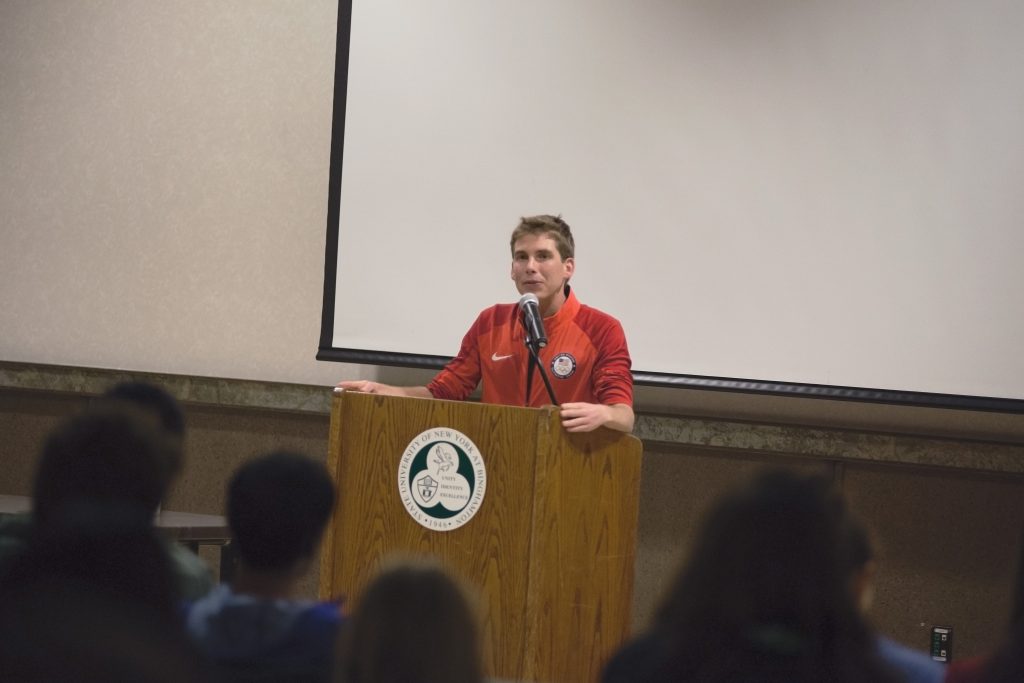
On Wednesday night, 2016 Olympic triathlete Joe Maloy fielded questions about his storybook career and appearance at the 2016 Summer Olympics. He represented the United States in 23 different countries and on six different continents before retiring after the Olympics. His talk focused on mental preparation and the importance of perseverance.
Pipe Dream: Talk about the Olympic qualifier race and what was going through your mind.
Joe Maloy: The Olympic qualifying race in mid-May in Japan was definitely one of the most interesting days of my life. For me the hardest part was worrying about things that were out of my control. I was worried about a bike crash taking me out, I was worried about a flat tire … then I realized — and this was the most difficult part — I had to left that stuff go. I couldn’t perform and do the things I needed to do if I was worried about all of this …
PD: Back in your training in Philadelphia, you said that you had a not-so-good race. You said changed something so that the next year you were third, second and first. What was that change?
JM: I realized I needed to change something but I didn’t know what … something wasn’t right and I wasn’t having fun. I decided to give myself a couple of months where I got in touch with an old swim coach. I asked him if he would be open to an old guy coming to swim with his high school team. It was an opportunity for me to do what I believe I needed to do. It was to surround myself with people who were where I wanted to be.
PD: When you get on the Olympic team, especially the triathlon, don’t they have a sports psychologist that are going to work with you specifically to get into that mindset or flow where you have no external or internal influences?
JM: There is access to those resources, but they are not forced upon you. [Flow-type research] is basically the idea that we have two traditional frames of thought. One is unconscious: what happens we are just existing, like we’re sleeping … we are kind of just reacting. Two is conscious: it’s where we’re responding to things, we’re thinking, we’re taking actions, we’re aware of what we are doing. Flow argues that there is a state of consciousness that is above both of those things. It speaks to athletes when a basketball player makes 10 shots in a row and people ask what he was thinking and he says he was just in a zone. We are not very good at understanding how to get there. The truth of it is, [the zone] is something that is individual and unique to everybody.
PD: How did you overcome some disappointments in placements?
JM: It’s important to not beat yourself up in the moment. It’s important to recognize what’s happening and that’s the aspect of you that wants to improve. You should greet that with enthusiasm. You should see the opportunity in that situation. I think it’s important to recognize what’s wrong and recognize what you believe you can improve.


